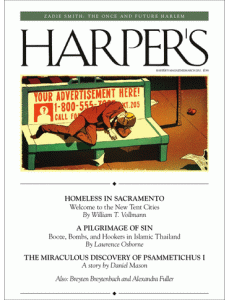This week’s installment of Who Do You Think You Are? with Steve Buscemi has an entertaining story about depression, suicide, servitude, and the Civil War … but it’s not about genealogy as it is generally understood.
After a fairly standard, but solid beginning, with Buscemi talking to his parents about his maternal grandmother, the show descends into wild speculation.
As with many of the shows, instead of starting with the present, and working backward, the show skips a generation. I understand that, in terms of privacy considerations on the show, but I hope the actual research started with family documents, and with Buscemi’s mother’s birth certificate, for example. So, they go to find Buscemi’s grandmother’s death certificate in New York records from 1928. This is reasonable enough. It’s good to see the star reading and evaluating the document. From here, Buscemi is directed to the 1880 census. Why? Did they not find her in the 1920, 1910, and 1900 census records? If they did search those census records, it is not mentioned in the show.
The death certificate says that Jane Montgomery would have been born circa 1880. However, when we find an 11-year-old Jane Montgomery working as a servant in a household in the 1880 census in New Jersey, there is no questioning whether this is the right Jane Montgomery. There are no other family members and the parents nowhere nearby, we assume this must be the ancestor.
In fact, of course, this 11-year-old servant is probably not an ancestor of Buscemi. First, her age is 11 years off what the death certificate would suggest. The death certificate has Jane as dying at the age of 48 in 1928. We know from the family stories that when she died in 1928, Buscemi’s mother was “like 3.” If anything, Jane is younger than what is stated in the death certificate, as 45 or so is pushing the high end of a woman’s fertility. If Buscemi’s grandmother in the death certificate and this servant girl are the same person, she have birth at the age of about 56.
It is at this point that things really veer off from general genealogical practice. The researcher from Ancestry suggests that Buscemi should search for shared trees on Ancestry. Now, I know they have a product to sell, and I give the researcher credit for saying that these trees can provide “clues.” However, as soon as they see a family tree with the expected names of the father, mother, and one of the children, they assume it’s correct. The next thing you know, Buscemi is off to the Pennsylvania state archives. Absolutely no evidence or analysis is provided to substantiate a relationship between Buscemi’s Jane Montgomery and the one in the member chart.
So, the show was a bit of a disappointment. I had been looking forward to it, as I appreciate the integrity of Buscemi’s work. In my opinion, Ancestry, in an attempt at product placement of their member trees has done a disservice to genealogy. This goes beyond the normal complaints of touching the documents, or hand-feeding insights to the stars. Ancestry seems to think (perhaps even know, based on metrical analysis of the use of their website), that unsourced trees are a key way to get memberships. So, despite the fact that doing so works contrary to the goal of sourced and thorough research, which can stand up to critical evaluation, Ancestry pushes forward their trees feature. Professional genealogists and serious non-profits in the field will have even more to explain because Ancestry has suggested jumping to conclusions is a valid research methodology.
And I end up wondering what Steve Buscemi’s ancestry really looks like.…






